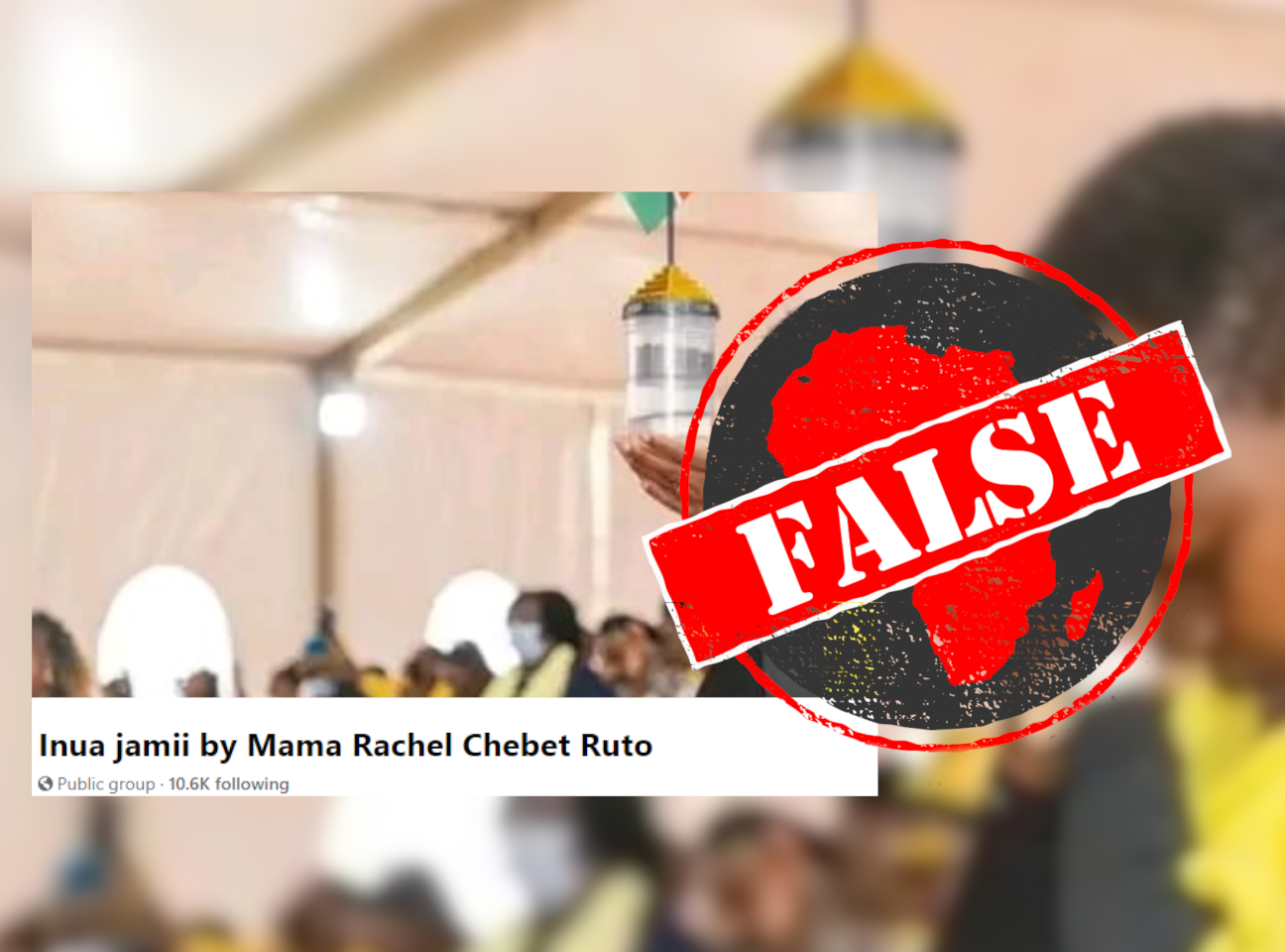IN SHORT: We saw plenty of false offers from and fake Facebook pages for former Kenyan first lady, Margaret Uhuru. And the online fraudsters have found a new target in the new president’s wife, Rachel Ruto. Beware of scam offers in her name.
A public group on Facebook with over 10,000 members has the name Inua jamii by Mama Rachel Chebet Ruto.
“Inua Jamii” is Kiswahili for “uplift the community”. It refers to a Kenyan government programme to give cash grants to the poor and vulnerable.
“Mama Rachel Chebet Ruto” refers to the new Kenyan first lady Rachel Ruto. Her husband William Ruto was sworn in as the country’s fifth president on 13 September 2022.
The group has photos of Rachel Ruto and posts by different users using photos and misspelt names for the first lady. These posts offer quick mobile money loans.
But is Ruto offering mobile “Inua Jamii” loans? We checked.

Public group not related to Rachel Ruto
The language used in the group’s posts, including the ease with which it promises to give out loans, signals that it could be a scam. Some posts have glaring grammatical errors and misspelt words.
The group was created on 7 August 2022 as “Mkopa phones”, and changed its name to “Inua jamii by Mama Rachel Chebet Ruto”on 13 September, the day Ruto was sworn in as president.
Three administrators of the group use the name “Rachel Chebet Ruttoh”.
None of the accounts link back to the verified page of the Kenyan first lady, which has over 900,000 followers. There are no loan offers on this official page.
‘Inua Jamii’ not run by the first lady
The Kenyan government’s Inua Jamii programme is not run by the office of the president or that of the first lady.
Previously, the scammers targeted Margaret Kenyatta, wife of former president Uhuru Kenyatta. The government then distanced itself from the scam loan offers.
In recent weeks, Africa Check has exposed another imposter account targeting the new first lady. This one is also fraudulent.
For more help in identifying fraudsters on social media, read our guide to Facebook scams and how to spot them.
Republish our content for free
For publishers: what to do if your post is rated false
A fact-checker has rated your Facebook or Instagram post as “false”, “altered”, “partly false” or “missing context”. This could have serious consequences. What do you do?
Click on our guide for the steps you should follow.
Publishers guideAfrica Check teams up with Facebook
Africa Check is a partner in Meta's third-party fact-checking programme to help stop the spread of false information on social media.
The content we rate as “false” will be downgraded on Facebook and Instagram. This means fewer people will see it.
You can also help identify false information on Facebook. This guide explains how.




Add new comment